Education Services
Before 2010, the education system of Liberia was in poor condition due to over 14 years of civil wars. Most of the schools either were damaged or destroyed.
And during Ebola Outbreaks, some schools were shut down because of fear. Thus, Liberia’s education system was left behind from other African countries’ education System, including literacy rate. Civil wars and Ebola outbreaks have played the role for weakening the Liberia education system.
Now, the education system is improving in Liberia but with a slow pace. There are two types of schools in Liberia: Public and Private schools. And few schools are run by religious groups.
Majority of the children go to public schools because education in private schools is very expensive. Vulnerable families can’t pay the school fee. Also, public schools lack some basic facilities such as clean water, benches for sitting, notebooks, pens, pencils, writing boards, neat and clean atmosphere. And one major problem is that teachers don’t work hard much because they are paid less salaries.
But now in the new government, the education system is improving and some NGOs have come forward to improve the education level in Liberia. And our non-profit organization – The LANSANAH Foundation, is one of them.
Key priorities –
- Organizing education campuses for mentally challenged children on a weekly basis so that everyone can get at least primary education.
- Free distribution of school essentials stationaries in public schools such as notebook, books, pencils, writing board etc.
- Make arrangement of clean drinking water for school children
- Free distribution of school dress for children of vulnerable families
- Free distribution of healthy and nutritious lunch for school children
- Promoting Civic Education:
As a team, we understand the importance of civil education. As such, we are at the mission of spreading the concepts of democracy, human rights, and responsible citizenship in society. Our mission of contributing to the development of civil society and the participation of citizens in policy shaping and decision making through the education of various actors in the field of democracy, human rights and Social integration will impact sustainable development.
Apart from all these, we run some vocational programs in higher education which are job oriented. And digital/Online classes for those who live in remote areas or far distance from school. And don’t have daily travel resources.








